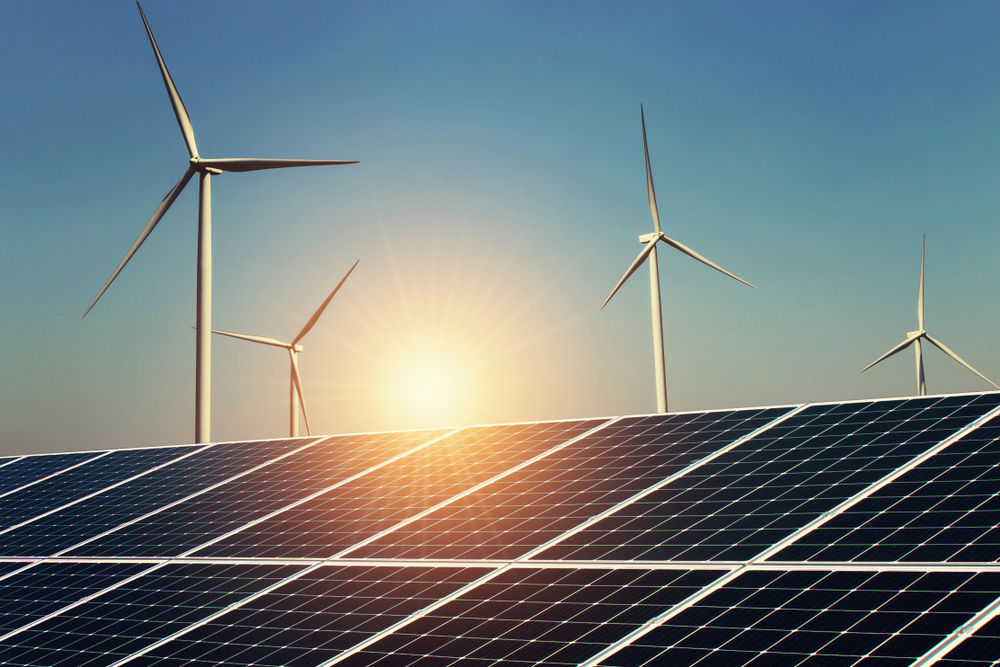Consequences of war, supply bottlenecks, inflation: Strategies against the crisis

Published on 05.10.2022
from PSI Journal, issue 8/9 2022
The markets had not yet fully absorbed the consequences of the Covid pandemic when the war in Ukraine broke out, an event that considerably dampened economic expectations in many countries. The PSI Journal editorial team have summarised the most important facts and figures from leading economic institutes and organisations for their focus article in issue 8/9 2022.
Around six months since the start of the Ukraine war, it is becoming clear just how serious the effects of the major risk factors of war and sanctions, inflation, supply bottlenecks for primary products and raw materials as well as ongoing logistics problems really are. In the meantime, gas shortages and enormous energy price increases are exacerbating the situation. All in all, these are economic conditions that unsettle the market and make entrepreneurial decisions more difficult. These are the facts.
EU economic growth slowing significantly
The longer the war in Ukraine lasts, the more serious the consequences will be and the more sobering the analyses and forecasts of how the economy will develop. Given the international nature of the PSI network consideration should be given to the situation at European and international level. The European Commission sees lower economic growth coupled with higher inflation in its latest economic forecast. The EU economy is expected to grow by 2.7% in 2022 and by 1.5% in 2023. For the eurozone, growth is projected to reach 2.6% in 2022, falling to 1.4% in 2023. According to EU calculations, in 2022 the annual average inflation rate is forecast to climb to an all-time high of 7.6% in the eurozone and 8.3% in the EU, before falling to 4.0% and 4.6%, respectively, in 2023.
Risks intensify
Many of the downside risks mentioned in the EU Spring 2022 Forecast have materialised. First and foremost, pressures on energy and food prices have increased. As a result, further inflationary pressures are building globally, household purchasing power is declining and the monetary policy response is coming faster than expected. As the recovery in the USA loses momentum, the negative economic effects of China’s zero COVID policy will come into even sharper focus. Overall, the EU economy is expected to continue to expand, but at a much slower pace than anticipated. Due to its large dependence on fossil fuels from Russia, the EU economy remains particularly vulnerable to developments on the energy markets. The recent cutback in Russian gas supplies to only 20 per cent of capacity shows how we are at the mercy of the Russian leadership. The weakening global economy is also having a negative impact on foreign demand.



Sobering forecasts for the global economy
Currently, the International Monetary Fund (IMF) sees growth of 3.2% for the industrialised countries in 2022 and 2.9% in 2023, with the eurozone in particular being downgraded. For comparison: in 2021, the global economy had still grown by 6.1%, in 2020 it had shrunk by 3.1% due to the pandemic. According to the forecast, the USA would grow the fastest among the G7, by 3.7% in 2022. For Germany, the IMF experts expect growth of only 1.2%. In May, the IMF still assumed 2% growth for Germany. At the end of July, the Organisation for Economic Co-operation and Development (OECD) and the World Bank had also significantly scaled back their growth expectations for Germany. For the German economy, the OECD group of industrialised countries expects growth of only 1.9% this year, instead of the approximately four per cent still forecast in December.
Germany strongly affected
The figures researched by PSI Journal come from the Macroeconomic Policy Institute (IMK) and refer only to Germany. The economists at the IMK expect gross domestic product (GDP) to increase by 1.9% in 2022. For 2023, they forecast economic growth of 2.6%. This is 0.2 and 0.6 percentage points less than in the spring forecast in March. The labour market continues to develop relatively positively, and the service sector is also benefiting from the impact of pent-up demand.
Energy prices jeopardise production
Meanwhile, it is becoming apparent that the high energy prices in Germany are already leading to production problems. A survey by the Association of German Chambers of Industry and Commerce (DIHK) among 3,500 companies at the end of July showed that 16% of industrial companies had to shut down their production or give up production sectors. For energy-intensive companies, the proportion was twice as high at 32%. According to the DIHK survey, the situation of many companies could deteriorate further over the course of the year, especially since only half the industrial companies would have covered their entire gas demand for 2022 through contracts, with over one third of companies still having to buy over 30% of their gas requirements. The extent to which the energy supply and price problems also affect manufacturers of promotional products depends on the industry and the structure of production. Apparently, many companies are quite well positioned as a result of previous and now accelerated investments in sustainable technologies.
Long delivery times due to supply bottlenecks
In addition to the energy crisis, shipping congestion and supply chain problems are also hampering industrial production and world trade. According to an analysis by the Kiel Institute for the World Economy (IFW), growth in industrial production over the coming months will continue to be largely determined by the supply bottlenecks. Although incoming orders have also dropped significantly by more than 5 per cent since the beginning of the war in February, companies are currently still receiving more orders than they can process. The length of time needed to process order backlogs has increased by more than 2 months in the manufacturing sector, for example, since the beginning of the pandemic due to the supply bottlenecks, which means longer delivery times. However, the supply bottlenecks will probably only be fully overcome in the course of the coming year at best, so they will continue to restrict production for some time, concludes IFW expert Dr Nils Jannsen. Overall, industrial production is currently still far below its pre-crisis level.
Logistics problems weaken trade
As PSI Journal respondents stress, supply chain and logistics problems continue to be a disruptive factor affecting all levels of trade. This is also confirmed by a survey conducted by the German Wholesale and Foreign Trade Association (BGA) in June. According to the survey, most respondents expect delays along the supply chain, such as congestion at major ports, delayed goods trains, etc., to continue to affect trade well into next year – if not beyond. Many companies say they can scarcely meet the consistently high demand for goods on time. Wholesalers and foreign traders are reporting additional costs of up to 50% due to organisational overheads caused by short-term rescheduling. Additional burdens are losses in productivity, staff shortages due to illness and a lack of skilled workers, pressure from employees, suppliers and customers as well as a general loss of trust along the supply chain.
Reduce dependencies
The Covid crisis has already shown just how vulnerable international logistics are. As a consequence, many large and foreign traders are realigning their supply chains, the BGA survey further revealed. This means that alternative business partners are sought, additional procurement and sales markets are found and new transport routes are used. Furthermore, traders are working on improving risk analysis and transparency along the supply chain. In terms of the outlook, respondents agree: the top priority must be to reduce overdependence and expand partnerships with additional countries. Key countries in Asia with whom trade relations should be expanded are, for example, Singapore, Malaysia, Thailand and Vietnam.
Sources:
www.statista.com
www.bundesfinanzministerium.de
www.dihk.de
www.boeckler.de
www.germany.representation.ec.europa.eu
www.ifw-kiel.de
www.spiegel.de
www.faz.net
Photos (c) Shutterstock














